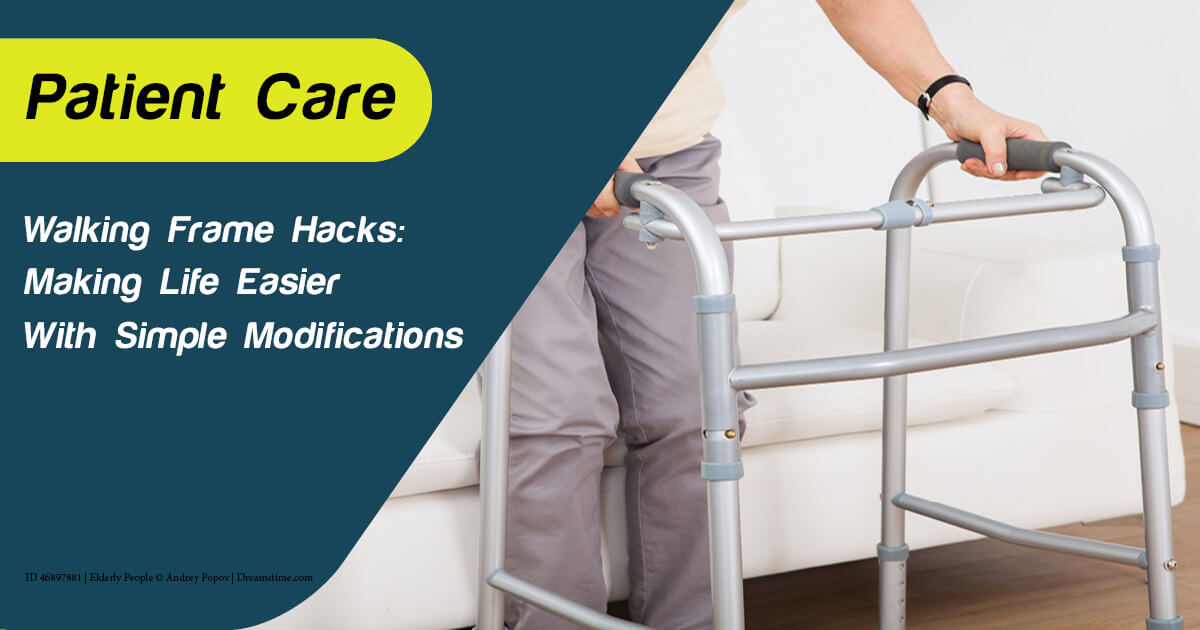
Share
Finding the right occupational therapist is a crucial step towards enhancing your quality of life and achieving your mobility goals. Whether you're recovering from an injury, managing a chronic condition, or seeking help with daily activities, an occupational therapist can provide the necessary support and guidance.
We understand the challenges individuals with mobility impairments face and the importance of finding the perfect occupational therapist. Through this comprehensive guide, we aim to empower you with the knowledge and tools needed to make an informed decision and navigate your occupational therapy journey with confidence.
JUMP TO:
- The benefits of occupational therapy
- Types of occupational therapy & their applications
- Identifying your needs
- Finding an occupational therapist
- Evaluating your options
- Making a decision
- Scheduling initial consultations
The benefits of occupational therapy

Photo 196255264 © Arne9001 | Dreamstime.com
Occupational therapy is a healthcare profession that focuses on helping individuals of all ages live fulfilling lives by promoting health, preventing injury, and managing disabilities. It is a science-based practice that utilises evidence-based interventions to enable individuals to engage in meaningful activities and improve their overall well-being.
The benefits of occupational therapy are diverse and can positively impact various aspects of your life. Some key benefits include:
- Enhancing independence in daily activities.
- Improving physical strength, coordination, and mobility.
- Addressing cognitive and sensory impairments.
- Promoting mental health and emotional well-being.
- Assisting with adaptive equipment and assistive technology.
- Facilitating community integration and participation.
- Supporting vocational rehabilitation and return to work.
Types of occupational therapy & their applications

Occupational therapy encompasses various specialised areas, each tailored to address specific needs and conditions. Here are some examples of occupational therapy specialties and their applications:
- Physical Rehabilitation: This type of occupational therapy focuses on restoring physical function, strength, and mobility after an injury, surgery, or medical condition. It may include exercises, manual therapy, and assistive devices to facilitate recovery.
- Paediatric Occupational Therapy: Paediatric occupational therapy is for children with developmental delays or disabilities. It helps them acquire the skills necessary for daily activities, like dressing, eating, and playing. Therapists may also address sensory processing difficulties and fine motor skills.
- Mental Health & Wellness: Occupational therapists specialising in mental health work with individuals experiencing mental health conditions like anxiety, depression, or schizophrenia. They help individuals develop coping strategies, improve daily functioning, and reintegrate into the community.
- Geriatric Occupational Therapy: Geriatric occupational therapy addresses the unique needs of older adults, including age-related conditions, cognitive decline, and functional limitations. Therapists may assist with fall prevention, home modifications, and adaptive equipment to promote independence.
Identifying your needs
Before starting your search for an occupational therapist, it's essential to identify your specific needs and goals. This self-reflection process will help you understand the areas where you require assistance and the outcomes you hope to achieve through occupational therapy.
Consider the following questions to help guide your self-assessment:

By clearly defining your needs and goals, you can narrow your search for an occupational therapist who specialises in the areas most relevant to you.
Finding an occupational therapist

Photo 195565147 © Robert Kneschke | Dreamstime.com
Once you have identified your needs, it's time to start researching potential occupational therapists who can meet them. Here are some strategies to help you find the best options:
- Ask for Recommendations: Seek recommendations from your primary healthcare provider, friends, or family members who may have had positive experiences with occupational therapists. Their firsthand insights can provide valuable guidance in your search.
- Check Professional Credentials: Verify the credentials and certifications of potential occupational therapists. Ensure they are licensed and registered with reputable occupational therapy boards or associations. These credentials ensure that the therapists have met specific educational and ethical standards.
- Read Reviews & Testimonials: Patient reviews and testimonials can offer valuable insights into the quality of care occupational therapists provide. Look for patterns in reviews that align with your specific needs and goals. However, remember that everyone's experience is unique, and what works for one person may not work for another.
Evaluating your options

Photo 36236272 © Meinzahn | Dreamstime.com
After conducting your research, it's time to evaluate and assess your options to make an informed decision. Consider the following factors when evaluating potential occupational therapists:
- Experience & Expertise: Assess the experience and expertise of each therapist. Look for professionals who have significant experience and exposure in supporting individuals with conditions similar to yours. Ongoing training and active involvement in their industry indicate a commitment to staying updated with the latest practices and techniques.
- Treatment Approaches: Inquire about the therapists' treatment approaches. Do they utilise evidence-based practices? Do they take a holistic approach, considering all aspects of your life and health? Understanding their treatment philosophy will help determine if their approach aligns with your preferences and goals.
- Communication Skills: Communication is key in any therapeutic relationship. During initial consultations, pay attention to how the therapist communicates. Do they actively listen to your concerns and answer your questions clearly? Do they explain things in a way that you can understand? Feeling comfortable and understood by your therapist is essential for successful therapy outcomes.
- Compatibility: Consider the compatibility between you and the therapist. Since you'll be working closely with them, choosing someone you feel comfortable with and trusting is important. A good rapport and mutual understanding can greatly enhance the effectiveness of occupational therapy.
- Transportation Options: Consider the transportation options available to you. If you rely on public transportation, choose a therapist whose clinic is easily accessible by bus, train, or other modes of transport. If you drive, ensure that the therapist's location has adequate parking facilities.
- Travel Time: Assess the travel time required to reach the therapist's location. Choose a therapist with a nearby clinic to minimise travel-related stress and time commitment.
- Availability of Appointment Slots: Check the availability of appointment slots that align with your schedule. Choose a therapist who offers flexible scheduling options, including early morning, evening, or weekend appointments, if necessary.
Making a decision

Photo 95151116 © Katarzyna Bialasiewicz | Dreamstime.com
After evaluating your options, it's time to make a decision. Choosing the right occupational therapist can be a challenging task, but by considering all the information you have gathered, you can make a choice that feels right for you.
Remember to consider the therapist's education, experience, treatment approach, and communication style. Also, trust your intuition and consider how comfortable and understood you feel with each therapist.
Take your time with this decision; finding the right occupational therapist is a significant step towards improving your mobility and overall well-being.
Scheduling initial consultations

Photo 30235379 © Miriam Doerr | Dreamstime.com
Once you have narrowed down your options, scheduling initial consultations with potential occupational therapists is crucial to assessing their compatibility and treatment approach. Consider the following during your initial consultations:
- Clarify Your Goals: Clearly communicate your therapy goals and expectations to the occupational therapist. Discuss the specific areas in which you need assistance and your desired outcomes.
- Ask Questions: Prepare a list of questions to ask during the consultation. Inquire about the therapist's experience, treatment approach, success rates, and understanding of your specific condition or goals.
- Assess Compatibility: Pay attention to the therapist's communication style and how well they address your concerns. Assess whether you feel comfortable and understood by the therapist, as a positive therapeutic relationship is essential for successful outcomes.
- Treatment Plan: Inquire about the therapist's proposed treatment plan for your needs. Understand the expected duration of therapy, frequency of sessions, and the interventions that will be utilised.
Empower your mobility journey with Active Mobility
Active Mobility supports your mobility journey by providing premium, easy-to-use mobility equipment and disability aids. We believe in empowering individuals with mobility challenges and improving their quality of life. Our products and services are tailored to your requirements, and our dedicated team works closely with you to ensure the perfect fit.
Remember, your occupational therapy journey is a collaborative effort between you and your therapist. Celebrate small victories along the way, communicate openly about your progress and concerns, and trust the process. With the right occupational therapist by your side, you can achieve your goals, enhance your mobility, and live life to the fullest.









